The hardware itself is pretty impressive. It has DX11 support, it can support both 3D and PhysX, and it is possible to use in 2-way SLI. It’s quiet when you’re playing games and surfing the internet, and the build is sturdy. The 560 Ti Superclocked requires a minimum of 500 watts of power, and a PCI-E slot in your motherboard.
The software it comes with is robust, and it allows you to easily overclock the graphics card stably. I’m not one for overclocking, as I like my hardware to last as long as possible, but the OC software did make me feel safer while I was cranking up the card’s performance. In case you don't have internet, the latest Nvidia drivers are included on the disc.
While I was testing, the 560 Ti Superclocked remained cool, quiet, and I never noticed it (except when running hardware hog games such as Crysis Warhead). This video card is, however, quite large – at least larger than the last few generations of Nvidia cards – so make sure your case can fit it, especially if you’ve been using a smaller computer case.
These features are great, but what really matters is the end product: how it performs in-game.
Benchmarks
Frame rates for all test games (without packed in benchmarks) were captured using Fraps, and all the frame rate results are from 2 minutes of each test game.
Specifications of Test Machine:
EVGA Nvidia GTX 560 Ti Superclocked Graphics Card
Corsair TX 750 Watt Power Supply
4 GB Kingston RAM
Intel i7 950 3.08 GHz Processor (Stock)
EVGA X58 SLI 3 Motherboard
Windows XP 32-Bit
Driver of Test Machine: EVGA GeForce GTX 560Ti SC 1GB RAM (266.56)
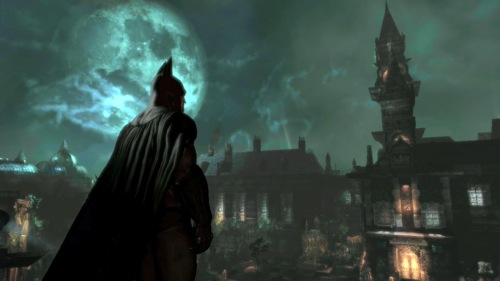
Batman Arkham Asylum Benchmark:
Resolution: 1280x1024
AA: 4x
Nvidia PhysX: High
All other settings: Highest
560 Ti Superclocked – Average 59.3 FPS
The frame rate here is hampered by the PhysX settings, which adds realistic smoke, cloth physics, and rubble. If you turn the PhysX down to “normal,” the frame rate skyrockets, though the additional graphical finesse is worth the lower rate.
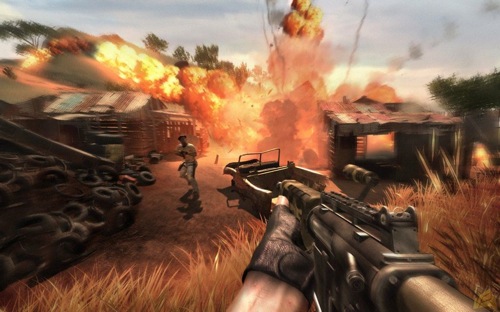
Far Cry 2 Benchmark:
Resolution: 1280x1024
AA: 8x
HDR and Bloom Enabled
Overall Advanced Options: Ultra High
560 Ti Superclocked – Average 58.08 FPS
Maximum 95.47 FPS
Minimum 41.74 FPS
This benchmark lost frames during the most heated combinations of propagating fire, shading, and AI, but it stayed relatively consistent.
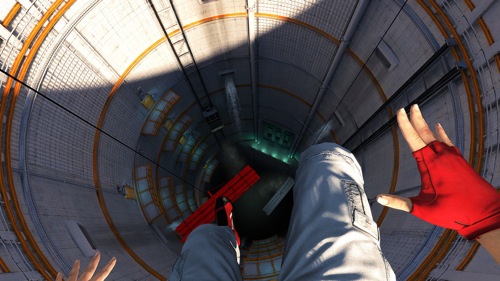
Mirror’s Edge Fraps 2 Minute Test:
Resolution: 1280x1024
Texture Detail: Highest
Graphics Quality: Highest
Vertical Sync: Off
Anti-Aliasing: 16xQ
PhysX Support: On
560 Ti Superclocked – Average 62 FPS
Maximum 62 FPS
Minimum 61 FPS
Even with vertical sync off, there is a limit on the frame rate in the Mirror’s Edge config file, limiting it to 62 frames a second. It only dipped one frame once during normal play, and the frames only dropped significantly in the loading corridors, which hurt the frame rate on all graphics cards.
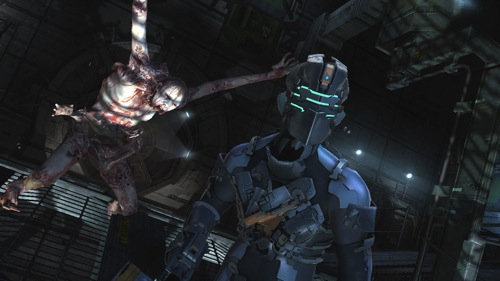
Dead Space 2 Fraps 2 Minute Test:
Resolution: 1280x1024
Preset: Highest
Vertical Sync: Off
560 Ti Superclocked – Average FPS 195
Maximum FPS 270
Minimum FPS 120
Not much to say about this other than it runs beautifully.
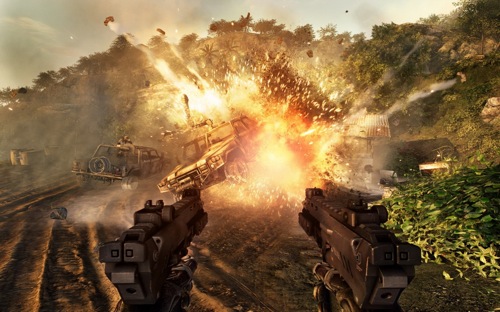
Crysis Warhead 2 Minute Test:
Resolution: 1280x1024
Anti-Aliasing: None
Preset: Enthusiast (AKA Highest)
560 Ti Superclocked – Average FPS 61
Minimum FPS 32
Playing Crysis Warhead on these settings was pretty inconsistent, with silky smooth performance one second and far lower performance the next. When areas were fully loaded, Warhead ran well, but performance took a nose dive every time loading occurred. Considering Warhead is one of the most punishing games on graphics cards ever, these are great frames per second.
At the price of $259.99, the EVGA Nvidia GTX 560 Ti Superclocked is a great deal. It doesn’t have the exorbitant cost of the higher end of the 500 series of EVGA video cards, but it gives you around the same performance, with only a couple of FPS less. $259.99 is still a lot for some, but it’s the best discount you’ll get on this sort computing power right now.